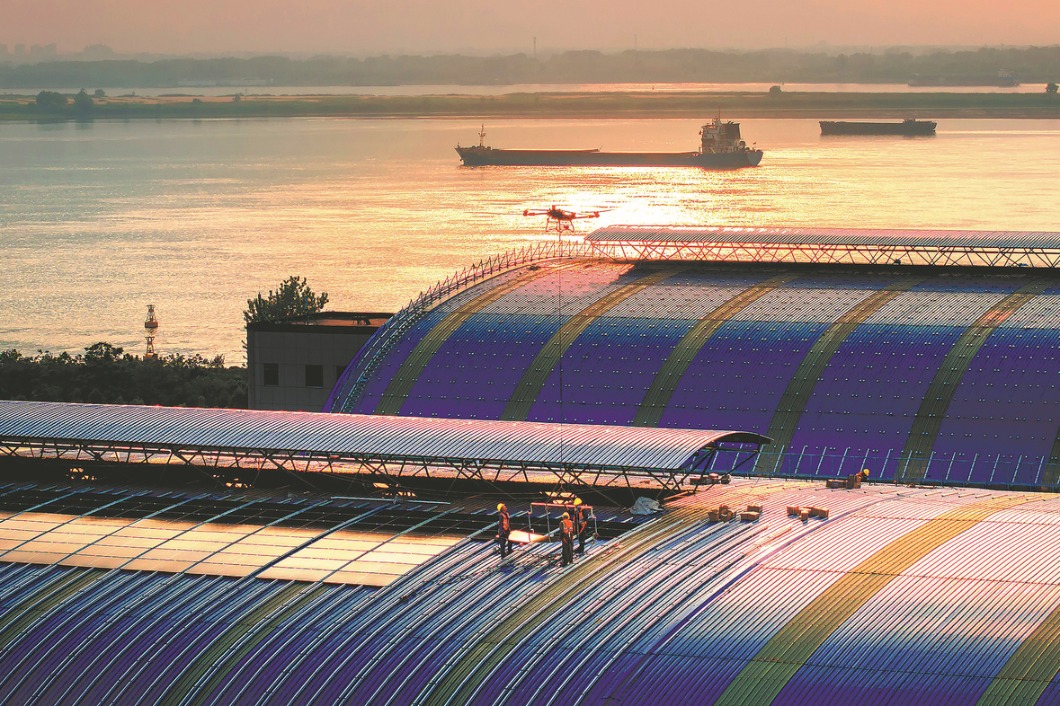'50 years no change' obsession is doing Hong Kong a disservice

Regina Ip Lau Suk-yee penned an excoriating opinion column in the South China Morning Post earlier this month declaring that Hong Kong is a "city in decline". She said it might be too late to reverse Hong Kong's inability to reinvent or evolve its economy.
"There is too much obsession with the '50 years no change' mantra," Ip wrote. The obsession with safeguarding its pre-1997 lifestyle and separate systems has blinded Hong Kong's leaders to the profound and systemic technological change taking place in the rest of the world - the pervasive power of digitization and information technology, the convergence of technologies across physical, biological and digital planes which is creating new, groundbreaking products and processes.
One of the most important general principles of "One Country, Two System" is specified in Article 5 of the Basic Law, which reads: "The socialist system and policies shall not be practiced in the Hong Kong Special Administrative Region, and the previous capitalist system and way of life shall remain unchanged for 50 years."
On the surface, it is very difficult to make sense of this article. The first part of the sentence - "The socialist system and policies shall not be practiced in the Hong Kong Special Administrative Region" - is simple enough. Both sides of the political spectrum in Hong Kong seldom challenge it but we are not quite sure why it must be correct and why it is in our best interest not to practice socialist policies in Hong Kong.

"The socialist system" as an immutable and universal political system simply does not exist. Its application on the Chinese mainland, as in "socialism with Chinese characteristics", is also always in flux, let alone individual policies.
It is almost impossible to define individual policies as socialist or capitalist. Is public housing socialist? How about public schools or estate tax? Hong Kong did not have minimum wage before the handover but it has now. Some would argue that minimum wage is socialist, and it certainly was not part of the "way of life" before 1997.
Taken together, and if you take it to its logical conclusion, the phrase "the socialist system and policies shall not be practiced in the Hong Kong Special Administrative Region" means only one thing - if the mainland practices something, it must be not suitable for Hong Kong, and we do not want to have anything to do with it.
This may have been a good rule of thumb when Hong Kong had absolute superiority over the mainland in all aspects but unfortunately that is long gone.
Anyway, are we seriously trying to say: "Whatever they do in the mainland, we are not going to do here in Hong Kong?" If we follow suit, how are we going to justify it? Logically speaking, there are only three rationales that we can use. The first is that the mainland policy is in fact capitalist, the second is that Hong Kong is going socialist. I prefer the third: The labels of capitalism and socialism are no longer relevant, and we will adopt policies that make sense, regardless of where they originate.
The second phrase of Article 5 - "the previous capitalist system and way of life shall remain unchanged for 50 years" - also creates a lot of issues.
How do we define way of life? There was no consumer internet when they wrote the Basic Law. Shall we stick to a lifestyle without smartphones until 2047? Is that what it means?
Way of life has a lot to do with economics and Hong Kong is an open economy susceptible to external influences. Is it also a violation of the Basic Law if Hong Kong people's purchasing power is eroded by inflation and the exchange rates?
Hong Kong people used to be able to have a massage in Luohu very cheaply, and we paid HK$80 for every 100 yuan around 1997. That used to be our way of life, which is not coming back.
If remaining unchanged is not an option, we must ask ourselves how we want to move forward. In self-help jargon, this is called embracing change. As a first step, we can amend Article 5 of the Basic Law to read "The Hong Kong Special Administrative Region shall update its political system and policies from time to time according to circumstances, and will actively embrace change in our outlooks and lifestyles in the years to come until 2047."
(HK Edition 05/16/2017 page11)
Today's Top News
- Healthy economic ties serve both sides
- China releases details of Huangyan Island nature reserve
- Xi congratulates president of Guyana on reelection
- Get the timing right to reduce 'debt cost' of natural disasters
- Advancing cooperation in global service trade urged
- PPI declines ease in Aug, first since Feb






























